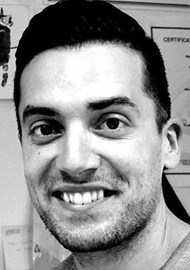Hearing loss is linked to chronic conditions like dementia and heart disease. Dr Maidment explores how integrated healthcare can improve outcomes, highlighting the need for a multidisciplinary approach.
Emerging evidence suggests that hearing loss is associated with an increased risk of developing other noncommunicable (or chronic) health conditions such as depression, cardiovascular disease, type II diabetes and dementia [1-3]. In addition, hearing loss in middle-aged and older adults has been linked to engaging in unhealthy behaviours, such as reduced physical activity and poor dietary habits [4], which increase the risk of developing chronic ill health.

Despite these findings, there is currently limited evidence on how to optimally promote healthier lifestyles in adults with hearing loss. This has subsequently led to calls for a more integrated approach to hearing healthcare, namely one that addresses hearing as well as associated chronic health conditions [5]. To begin to explore this gap, a three-part research project investigated the knowledge, perceptions and experiences of hearing healthcare professionals and adults with hearing loss. The overall aim of this project was to inform whether the delivery of a more holistic, person-centred approach to hearing healthcare is feasible.
The perspectives of hearing healthcare professionals
Semi-structured interviews were completed with eight professionals. Reflexive thematic analysis revealed four key themes related to knowledge, professional responsibilities, practical barriers and interdisciplinary collaboration.
Awareness and knowledge
“I think there’s obviously, a proven link, isn’t there… you know, memory issues, dementia, Alzheimer’s, that kind of health issue and how it affects people… socially in their personal life.”
Many hearing healthcare professionals acknowledged a link between hearing loss and other health conditions, particularly dementia and cognitive decline. However, their knowledge was often self-directed, acquired through professional development and / or personal interest.
Professional boundaries
“I think that’s more of the general practitioner’s role because I think they might get offended if I start talking about things like that that aren’t directly linked to hearing.”
Some professionals expressed reluctance to discuss general health concerns with their service users, feeling that topics such as diabetes or cardiovascular disease fell outside their clinical remit. There were also concerns about overstepping roles traditionally assigned to general practitioners.
Patient interactions and barriers
“I’m not sure that people see you as medical personnel... We’re not doctors, so sometimes they’re like, well, I’m not sure that they’d be convinced that we should be giving them any other information than what would be hearing related.”
Many professionals noted that their service users were often unaware of the broader health implications of hearing loss, which made it challenging to introduce these during clinical discussions. Additionally, time constraints and a lack of clear guidelines hindered their ability to engage their service users in more general health-related conversations.
Need for interdisciplinary collaboration
“We have a role… to educate people in taking care of themselves… because hearing loss has so many touch points across the health and wellbeing spectrum, I think if you only isolate hearing and think about it as a barrier to communication, you’re not really treating the whole person.”
Several professionals highlighted the value of working alongside other healthcare providers, such as other specialists or allied health professionals and general practitioners, to ensure a more integrated approach during clinical appointments.

The perspectives of adults with hearing loss
In addition to hearing healthcare professionals, eight middle-aged and older adults with hearing loss were interviewed to explore their awareness of the health implications associated with their condition. The findings revealed important gaps in knowledge and perceptions.
Limited awareness
“I’d be surprised to learn there was a physical link between hearing loss and something like diabetes.”
While most adults were aware of the link between hearing loss and dementia, there was little recognition of its associations with other health conditions, such as cardiovascular disease and diabetes.
Misinformation and scepticism
“I read a paper that linked hearing loss to dementia... but how do you prove that? I’m not convinced there’s a cause and effect between hearing loss and dementia.”
Some adults were hesitant to accept claims about hearing loss affecting overall health, particularly when presented without clear evidence. Others feared that such discussions might lead to unnecessary anxiety.
Preference for reliable information
“I think these days, with the power of internet, there is everything about your health you can find out. Finding the true answers or honest answers is sometimes difficult.”
Many older adults expressed a preference for receiving health-related information from trusted sources, such as health service websites or healthcare professionals, rather than general online searches.
Impact of hearing loss on lifestyle
“I only really need help in social situations... it’s a lot easier just to not bother concentrating and switch off.”
The impact of hearing loss on social interaction, communication and hobbies was frequently acknowledged, but adults were less aware of how the impact of hearing loss might relate to broader health issues.
"Adults were less aware of how the impact of hearing loss might relate to broader health issues"
Developing strategies for holistic health promotion
Based on the semi-structured interview findings, a three-round electronic Delphi consensus study with 25 hearing healthcare professionals was completed. Professionals ranged in experience from four to 39 years, and represented both public (i.e. audiologists working within the National Health Service) and independent sectors.
The aim of the Delphi study was to develop agreement regarding potential strategies that could be adopted to incorporate general health discussions into routine clinical appointments. This method also allowed hearing healthcare professionals to provide input and reach a consensus on potential best practices.
Key recommendations where consensus was reached included:
- Hearing healthcare professionals should be actively encouraged to engage in brief, respectful conversations about general health topics, such as physical activity, nutrition, and mental wellbeing, during routine appointments to improve service users’ awareness.
- Accessible and engaging infographics, brochures and digital tools should be created and offered by professionals to improve service users’ knowledge about the health implications of hearing loss.
- Interdisciplinary collaboration between hearing healthcare professionals and other professional specialisms should be enhanced, such as by establishing new referral pathways to provide comprehensive support to adults with hearing loss.
- More structured guidelines and training sessions should be provided that equip professionals with the skills and confidence needed to discuss general health topics with service users during clinical appointments.
Conclusion
Hearing loss intersects with broader health challenges, suggesting that hearing healthcare requires a more integrated approach. By leveraging opportunities within routine clinical appointments, professionals can play a pivotal role in promoting overall health and wellbeing for adults with hearing loss. The research outlined in this article highlights the importance of understanding the perspectives of both professionals and adults with hearing loss, identifying barriers to engagement and developing practical strategies to bridge the gap between hearing and general health. Moving forward, developing, evaluating and implementing these strategies in practice will be key to fostering a more holistic and inclusive approach to hearing healthcare – one that not only enhances hearing but also contributes to improved health outcomes more generally in adults with hearing loss.
References
1. Shukla A, Harper M, Pedersen E, et al. Hearing loss, loneliness, and social isolation: a systematic review. Otolaryngol Head Neck Surg 2020;162(5):622–33.
2. Tan HE, Lan NSR, Knuima MW, et al. Associations between cardiovascular disease and its risk factors with hearing loss-a cross‐sectional analysis. Clin Otolaryngol 2018;43(1):172–81.
3. Maharani A, Pendleton N, Leroi I. Hearing impairment, loneliness, social isolation, and cognitive function: longitudinal analysis using English longitudinal study on ageing. Am J Geriatr Psychiatry 2019;27(12):1348–56.
4. World Health Organization. World Report on Hearing. Geneva, Switzerland. 2021.
www.who.int/publications/i/
item/world-report-on-hearing
[Link last accessed April 2025].
5. Maidment DW, Wallhagen MI, Dowd K, et al. New horizons in holistic, person-centred health promotion for hearing healthcare. Age Ageing 2023;52(2):1–8.
Declaration of competing interests: None declared.
Acknowledgements
This research, funded by Sonova AG, was led by Dr David Maidment in collaboration with Drs Maria Goodwin (Aston University), Katelynn Slade (Loughborough University) and Emily Urry (Sonova AG). The research team would like to extend our gratitude to all individuals who took part, as well as Karen Shepherd and colleagues at Boots Hearingcare for supporting the research. We would also like to thank HearingTracker and their Facebook support group, ‘Hearing Aid and Hearing Loss’, for their assistance in recruitment.









